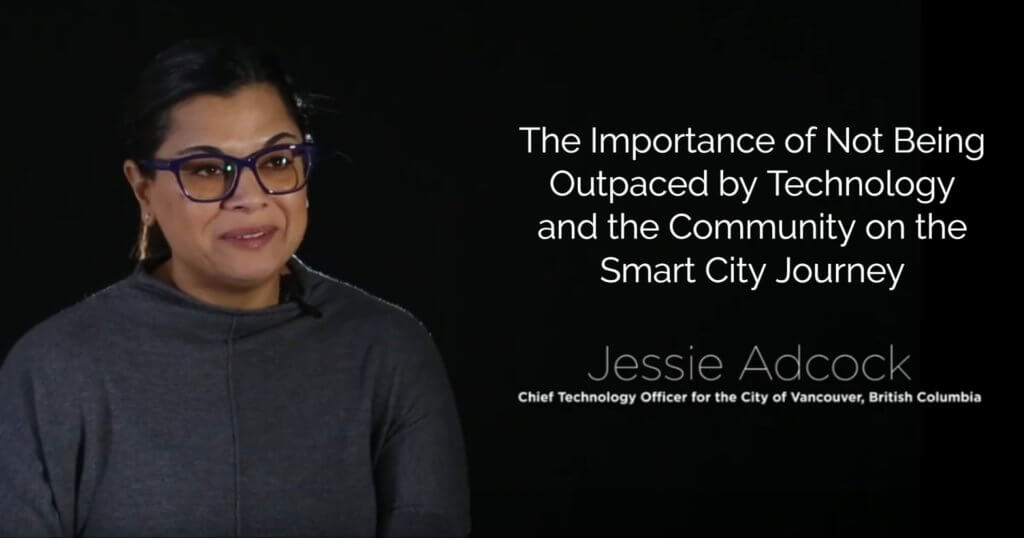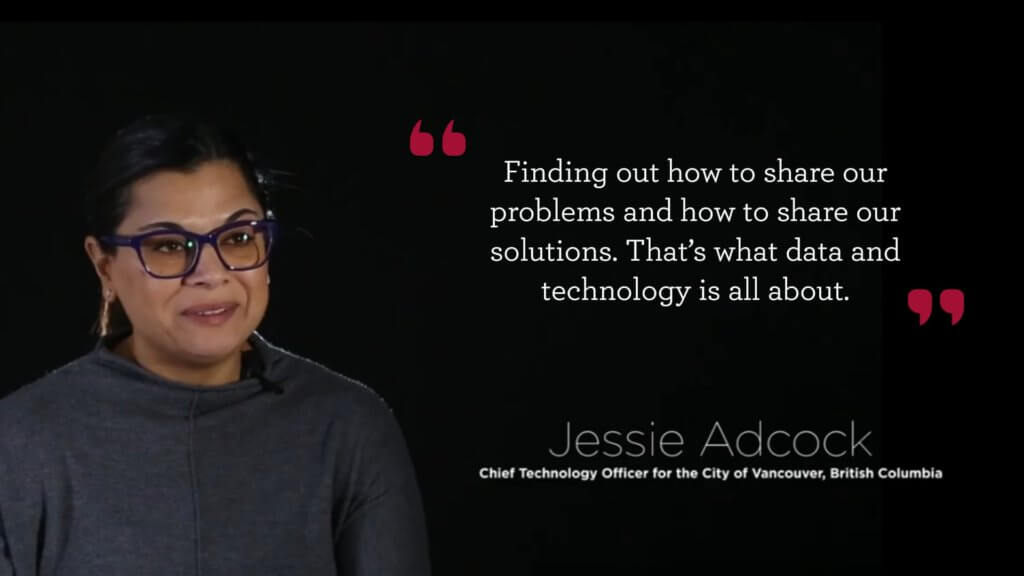
Jessie Adcock, Chief Technology Officer for the City of Vancouver, believes that a smart city is one that is able to strategically use data and technology to solve real-world problems. She also believes it’s an evolution, and by the end of next year, her definition may completely change.
@JessieAdcock, CTO for the @CityofVancouver, shares lessons from their #smartcity journey and advice for #cityleaders. Click To TweetBut according to her, right now ‘smart city’ is a ‘thing’ because it has to be and because cities haven’t evolved in pace with where the world, industry, technology, and commerce are at.
And that can be an issue for those cities on the smart city journey. Here’s more on Adcock’s thoughts on this subject:
The core purpose of any city is to serve the community around it. However, the evolution of that community is now out-pacing the evolution of the government that’s meant to serve that community.
“Once upon a time, it might have been analog disruptions, but now data, technology – technology in the home, technology in your hand – is creating a new way of living. It’s creating a new way of working. It’s creating a new way of commuting. And the government that is meant to serve that community really needs to become a lot more rapid in its deliveries – more agile, more nimble, more flexible – so that it can move along with the community that it serves.”
So how does a city not get out-paced by technology and its community?
Adcock believes it starts by changing how you think about your city. Instead of looking at your city as roads, utilities, parks, and city facilities, you need to think about data and technology. Click To Tweet When she came to Vancouver as their Chief Digital Officer from the private sector, her role was to simply introduce the nomenclature of digital to their hundred-year-old institution. She started small with digital services; multi-channel stuff like the call center, web properties, and apps. By showing that there is a new way to consume government services through a digital medium opened the door to move forward to more traditional technology and firmly ground them as a lateral corporate service.
It was a process, a five-year journey, but an accomplishment and achievement in an environment where it did not previously exist.
With that foundation in place, Adcock and her team have been able to embark on the development of an enterprise data and analytics framework. This allows them to move from a reporting kind of methodology process to a more real-time data-driven analytics, insights-driven-decisions, data-drives-wisdom, type of thought process. Having the enterprise data and analytics strategy has allowed them to empower their business.
“Because we’re not saying we need to control everything, but what we’re saying is that if we think about data at an enterprise level, and then we make sure that we are housing what is important within that data in a repository that can be accessed both internally and externally, we can then federate the empowerment outside of IT,” says Adcock.
By having quality standards in place to ensure the data is clean and by creating a set of tools that business units can use to access the data whenever they want, Vancouver is seeing great things from the business users taking… Click To TweetThey’re able to create relationships between the data and make decisions faster in real-time, which helps them manage their businesses better. Their businesses are now empowered by data.
Advice for the Smart City Journey
Adcock has this advice for any other cities who aren’t currently using data and technology, but want to start the smart city journey:
“First, in order to stay relevant, in order to maintain your function as the manager of the property that citizens live on, you need data and technology because your communities are evolving. So, relevance is a key aspect of why it’s important. Second, it’s about effective management. Data and technology allow us to more effectively manage what we need to do. In the circle of the city, which serves its people and creates positive benefits for its communities, you need to have effective management to make sure that you’re doing your job in the best way possible. And you can’t do that moving into the future if you don’t have a robust technology foundation.”
[tweet_dis_img]
Her final thought:
“Finding out how to share our problems and how to share our solutions. That’s what data and technology is all about.”
These insights were shared at the Smart Cities Innovation Accelerator at Las Vegas.
